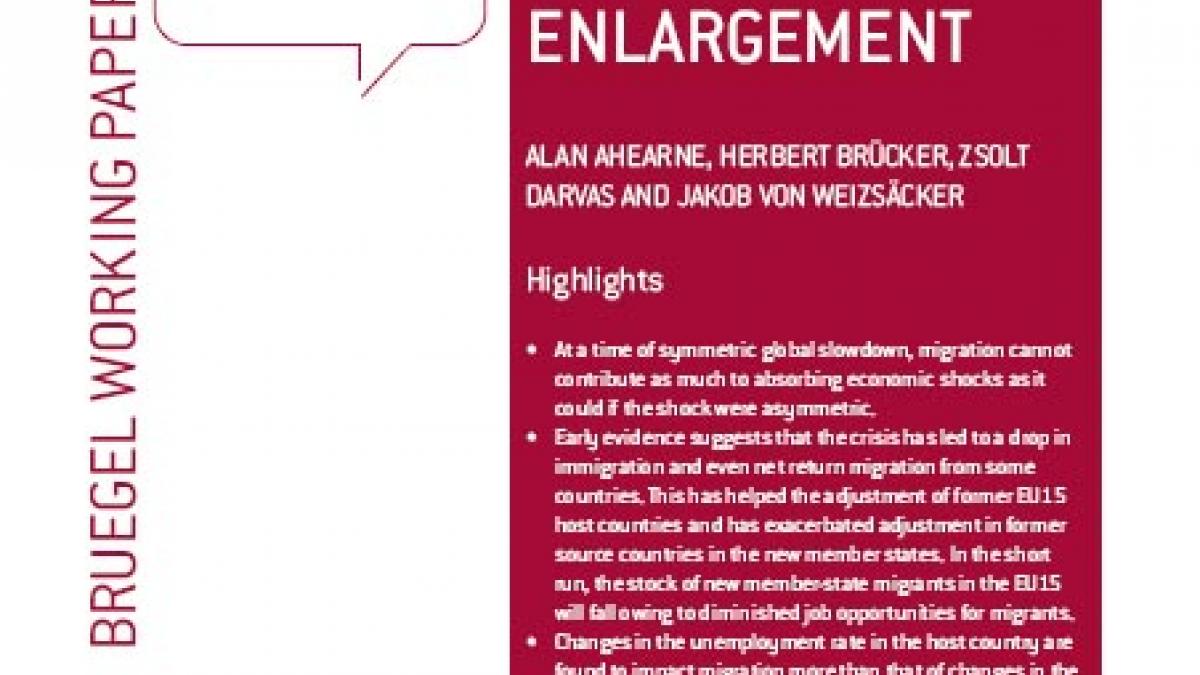Cyclical dimensions of labour mobility after EU Enlargement

At a time of symmetric global slowdown, migration cannot contribute as much to absorbing economic shocks as it could if the shock were asymmetric. Early evidence suggests that the crisis has led to a drop in immigration and even net return migration from some countries. This has helped the adjustment of former EU15 host countries and has exacerbated adjustment in former source countries in the new member states.
In the short run, the authors believe that the stock of new member-state migrants in the EU15 will fall owing to diminished job opportunities for migrants. In the longer run, the crisis is set to increase migration from the new member states compared to what would have been the case without the crisis.



